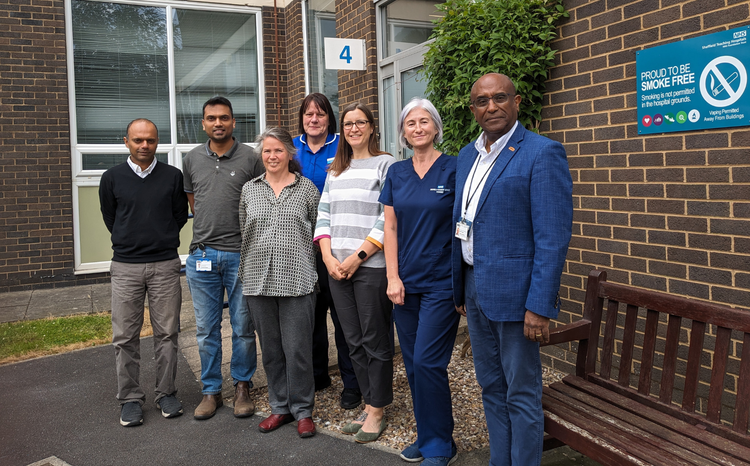Sheffield Teaching Hospitals NHS Foundation Trust has introduced a cutting-edge smart technology initiative aimed at reducing the risk of nerve damage in individuals with type 2 diabetes.
The Oceanic (One-Stop Screening And Intensified Care) trial is now underway and is scheduled to run for a duration of two years.
Utilizing wearable sensors and activity-tracking watches, researchers are able to monitor real-time health data of participants and offer lifestyle support to assist in managing risk factors effectively.
The goal of this initiative is to enhance the management and potential reversal of diabetic peripheral neuropathy, a condition that arises from prolonged high blood sugar levels damaging nerves throughout the body, ultimately increasing the risk of injuries and foot ulcers that may necessitate amputation.
Leading the trial in Sheffield, consultant physician and diabetologist Solomon Tesfaye stated, “Diabetic peripheral neuropathy is a distressing and painful condition that significantly impacts quality of life and independence. Through this trial, we aim to showcase the critical importance of early identification of diabetes-related nerve damage and the potential for intensive management of risk factors to mitigate the severe consequences of this prominent diabetes complication.”
The trial will involve the enrollment of patients aged 18 to 75 with early-stage diabetes-related nerve damage, half of whom will receive intensive care encompassing continuous monitoring and personalized lifestyle guidance. This subgroup will have regular face-to-face interactions with diabetes specialists, utilize wearable sensors to track glucose levels, activity, and weight, and receive tailored education and assistance for lifestyle adjustments.
On the other hand, a control group will continue to receive standard care while periodically using monitoring devices for research purposes.
Leveraging the advancements in smart health technologies, such as real-time glucose-sensing wearable sensors and smart weighing scales capable of monitoring body composition changes, the trial has garnered financial support from Viatris, a global pharmaceutical company, and Withings, a consumer electronics company.






